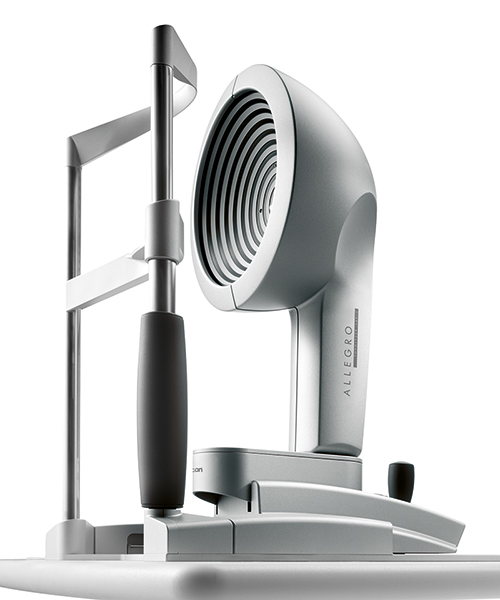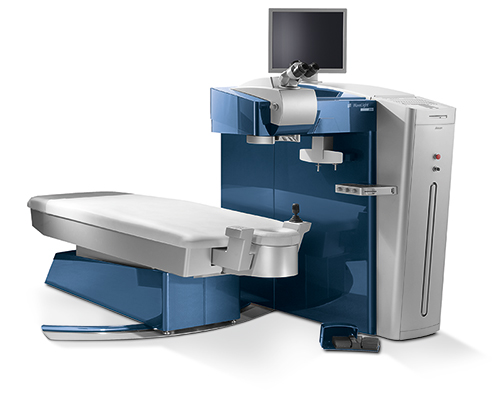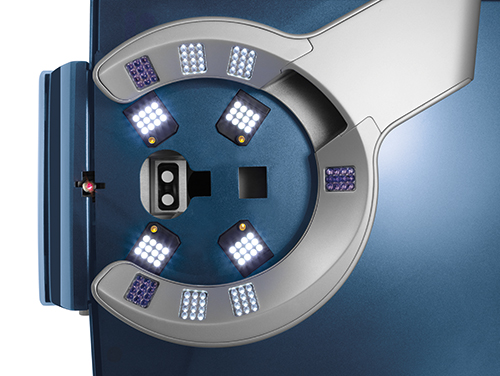Lasik vs PRK
Laser vision correction is a procedure to reshape the front surface of your cornea to improve the natural focus of the eye. There are two common procedure done to achieve this outcome, Lasik (laser-assisted in situ keratomileusis) and PRK (photorefractive keratectomy). Both of these procedures are done in a laser suite within our office. Mild sedatives are available if you are nervous or anxious the day of your surgery.
Lasik is a procedure where your surgeon numbs the eye with drops and creates a thin flap of tissue on your cornea using a laser. The flap is lifted and a second laser (excimer) is utilized to ablate or reshape the inner layers of the cornea. The cornea flap is placed back into position where it will heal.
During PRK, the surgeon will numb the eye with drops then remove the surface layer (epithelium) of your cornea. The same excimer laser will be used to reshape the cornea to correct your vision. A bandage contact lens will be placed on the eye which will remain in place until the surface tissue heals and will then be removed by your doctor.
Both procedures offer similar long-term refractive outcomes. Lasik is preferred by most patients due to the shorter healing time and minimal discomfort.

Am I A Candidate For Laser Vision Correction
A complete consultation will be done prior to laser vision correction to determine if the procedure is appropriate for the patient. Your doctor will discuss which procedure is best for you as well as the risks and benefits of surgery. Scheduling a consultation does not obligate you to move forward with surgery.
GENERAL GUIDELINES FOR LASER VISION CORRECTION:
- Age: You must be at least 18 years old.
- Stable correction: Patients must have a stable eye glass/contact lens prescription for at least 1 year.
- General Medical: Patients must be in generally good health. You should not have uncontrolled diabetes, active autoimmune or collagen vascular disease (such as rheumatoid arthritis, lupus, colitis, etc.)
- Medications: Patients should not be currently taking Accutane (isotretinoin) or Cordarone (amiodarone).
- Eye health: Patients should not have a history of cataracts, infections with scarring, keratoconus (or family history) or other hereditary corneal dystrophies, Herpes Zoster or Herpes Simplex (of the eye).
- Dry Eyes: Patients should not be suffering from chronic dry eyes prior to surgery.
The comprehensive evaluation will be the final determining factor in you proceeding with laser vision correction. Your doctor will discuss your specific measurements and determine what procedure, if any, would be best for you. This will take into account the measurement of your eyes, your age, your hobbies and work.
If your doctor determines you are not a good candidate for laser vision correction, you may be eligible for another refractive procedure such as ICL or refractive lens exchange.



What To Expect Before Your Laser Vision Correction Surgery
Your doctor will provide a complimentary consultation to determine candidacy for laser vision correction. This comprehensive evaluation will include a thorough examination of the health of the eye. We will also check your eyeglass prescription and perform topographies of the cornea and determination of corneal thickness. A dilated examination may be necessary if not done by your eye care provider. These measurements will be used in the preoperative calculations for your surgery if you are determined to be a good candidate. PLEASE remove your contact lenses at least 3 days (preferably more) prior to your evaluation.
What To Expect The Day Of Laser Vision Correction Surgery
On the day of your surgery, please wear comfortable clothes and bring a driver. You will start the process by speaking with our laser vision coordinator. They will review your instructions and take care of payment if not done previously. Your eye glass prescription will be checked again to verify consistency. Your surgeon will review the procedure as well as repeat an examination of the front structures of the eye.
You will be escorted to the laser suite by a technician. They will assist you in getting comfortable on the laser bed. The surgical eye is prepped for treatment. This will include eye drops to numb the eye as well as solution to clean the surface of the lids. A lid speculum is placed to keep the eye open during your procedure. This will keep you from blinking. The fellow eye will be covered by a patch.
The surgeon, being assisted by certified laser technicians, will complete the treatment using a highly sophisticated laser and computer tracking device. The procedure will be done in a few minutes per eye. While most patients do no experience pain, most patients describe a pressure sensation during their procedure.
At the conclusion of both eyes, your surgeon will take a quick look at the eye with a microscope prior to discharging you. You will be asked to try and keep the eyes closed for a couple of hours. Most patients experience a stinging sensation like they have soap in their eye, have noted tearing and you can be sensitive to lights. This should only last for a couple of hours. You will notice an immediate improvement in vision and should see continued improvement over the next 24-72 hours. For patients undergoing PRK, you will have discomfort for a couple of days after the surgery. You also may notice fluctuating vision over the next couple of weeks as the surface of your eye heals.
Risks Of Laser Vision Correction
Laser vision correction is a wonderful procedure that has helped millions of patients free themselves of the burden of glasses and contacts.
As with any surgical procedure, there are risks that go along with these benefits. Laser vision correction is not for everyone. Your doctor will complete a thorough examination to determine if you are a good candidate for either Lasik or PRK.
We expect most patients to experience some dryness in the immediate post-operative period. This will tend to clear us as the eye heals but laser vision correction can make dry eyes worse. We also expect many patients to see mild halos or glare around lights after surgery. This is a common phenomena that is created by the optics of the eye.
Other less common risks include infection, inflammation, corneal haze formation, over or under correction which may require glasses, pain or foreign body sensation (usually within 48 hours of surgery) or loss of best corrected vision.
No one can guarantee you will be completely free from glasses or contacts after surgery even though most patients achieve this outcome. Even after surgery, your eyes may change over time which would require glasses, contacts, or additional surgery. Most patients over the age of 40 will require reading glasses.
